Psyche in the World, Psyche in the Soul
Further Explorations in the Expression of Synchronous Events
August Symposium (Residency)
with international branches in English Spanish and Russian
On-line Zoom webinars - Eastern Time Zone
10am - 11:30am and 12noon – 1:30pm on
Saturday, August 22
Sunday, August 23
Saturday, August 29
Sunday, August 30
Public - $150 for all four days
plus $7.50 processing fee
20% Discount for Seniors
Call -(860) 415-5004
Or email - [email protected]
For CODE
Current APA Students Automatically registered
Recordings of the faculty lectures are included in the tuition
Only the symbolic life can express the need of the soul... And because people have no such thing, they can never step out of this mill – this awful, banal, grinding life in which they are “nothing but.”
(Jung, The Symbolic Life, CW Volume 18)
Jung and Pauli’s investigations into the domain of Synchronicity confirmed what the ancients knew about the unus mundus–that Psyche and Matter are expressions of a unified world. Suddenly with this discovery, many of the world’s greatest insights are understandable. For instance, “and the word was made flesh” and Einstein’s finding that matter is energy manifested in form, both speak to this unified reality.
It was the brilliance of F. David Peat, to understand that;
.. the formation of patterns within the unconscious ... is accompanied by physical patterns in the outer world. In particular, as psychic patterns are on the point of reaching consciousness, the synchronicities reach their peak ... It is as if the internal restructuring produces external resonance, or as if a burst of 'mental energy' is propagated outward onto the world.
In: Synchronicity: The Bridge Between Mind and Matter
To understand that the constellation of unconscious, archetypal dynamics are “accompanied by physical patterns in the outer world” allows us to see that each significant event, relationship and orientation in life is an expression of Psyche. Here, Jung, Peat, von Franz and Pauli all agree that Psyche is constantly manifested in the patterns of our life, and that psyche is energy having found recognizable form and patterns.
In appreciating these deeper dimensions of confluence we are brought to a far richer, and perhaps disquieting understanding of our own life. As the veil between internal and external reality lifts we understand that it is this “Voice of Psyche” speaking through the stories unfolding in our life, and is a telling of the mythology of our own soul.
At times this voice is as gently as a parent whispering "I love you " in their child's ear, or as jarring as a terrifying scream in the night. This voice is heard in our profound love for our children, the first blush of fascination for another, the tumultuous ending of a relationship, or the death of an aging parent. So too, she speaks when allowing us to feel the joy in tending our gardens, seeing the radiant and ravishing beauty of flowers and the joy in harvesting those delicious “fiore di cucuzza” for that special dinner. Each allows us to feel the rhythms of our life.
To see that the world is Psyche’s canvas, we now seek to understand something of this artist’s voice. We long to understand the artist's message conveyed in these images of birth, growth and life and sense they speak to some new, and meaningful life occurring within the psyche. So too we have to look at those tortured situations in life, perhaps expressed in a career choice, an attitude about life, or in a relationship, all representative of our alignment to archetypal fields within which our heart and soul could never come home.
To experience the presence of Psyche in matter carries the promise of a relationship to soul. It is this symbolic attitude which remained central in Jung’s life and work, and captured in the following;
(We are) … in need of a symbolic life – badly in need. We only live banal, ordinary, rational, or irrational things … but we have no symbolic life. Where do we live symbolically? Nowhere except where we participate in the ritual of life. (Jung, 1939)
Here we begin the process of welcoming back those aspects of Self, exiled, forced to live in the wilderness of the external world. Perhaps as we learn something of the rhythms and textures of this Voice, and with the aromas of those zucchini blossoms frying in the kitchen, accompanied by that bottle of wine, we too will find our way home.
To address these issues of expressions of Psyche in Life, Psyche in life we have gathered together a truly gifted and international faculty. Dr. Ann Ulanov, a prolific writer and Senior Jungian Analyst from New York, is giving our keynote lecture. Joining her will be Dr. Victor Krebs, an archetypally informed philosopher from the Pontifical Catholic University of Peru, Jonathan Pageau, an internationally acclaimed artist and iconographer and Michael Dr. Conforti.
.
During the conference there will be a series of presentations addressing; Advances in the Field of Archetypal Pattern Analysis., by Bonnie Pfeiffer, (USA), Tiffany Gordon, (South Africa/Holland) and Muriel McMahon and Jan Brown, Dr. Eduardo Carrillo and Muriel McMahon, Co-Directors of Study at The Assisi Institute will serve as respondents for the presentations.
We hope you will join us for this program and be part of the growing Assisi Community with participants in more than 20 countries from around the world.
(Jung, The Symbolic Life, CW Volume 18)
Jung and Pauli’s investigations into the domain of Synchronicity confirmed what the ancients knew about the unus mundus–that Psyche and Matter are expressions of a unified world. Suddenly with this discovery, many of the world’s greatest insights are understandable. For instance, “and the word was made flesh” and Einstein’s finding that matter is energy manifested in form, both speak to this unified reality.
It was the brilliance of F. David Peat, to understand that;
.. the formation of patterns within the unconscious ... is accompanied by physical patterns in the outer world. In particular, as psychic patterns are on the point of reaching consciousness, the synchronicities reach their peak ... It is as if the internal restructuring produces external resonance, or as if a burst of 'mental energy' is propagated outward onto the world.
In: Synchronicity: The Bridge Between Mind and Matter
To understand that the constellation of unconscious, archetypal dynamics are “accompanied by physical patterns in the outer world” allows us to see that each significant event, relationship and orientation in life is an expression of Psyche. Here, Jung, Peat, von Franz and Pauli all agree that Psyche is constantly manifested in the patterns of our life, and that psyche is energy having found recognizable form and patterns.
In appreciating these deeper dimensions of confluence we are brought to a far richer, and perhaps disquieting understanding of our own life. As the veil between internal and external reality lifts we understand that it is this “Voice of Psyche” speaking through the stories unfolding in our life, and is a telling of the mythology of our own soul.
At times this voice is as gently as a parent whispering "I love you " in their child's ear, or as jarring as a terrifying scream in the night. This voice is heard in our profound love for our children, the first blush of fascination for another, the tumultuous ending of a relationship, or the death of an aging parent. So too, she speaks when allowing us to feel the joy in tending our gardens, seeing the radiant and ravishing beauty of flowers and the joy in harvesting those delicious “fiore di cucuzza” for that special dinner. Each allows us to feel the rhythms of our life.
To see that the world is Psyche’s canvas, we now seek to understand something of this artist’s voice. We long to understand the artist's message conveyed in these images of birth, growth and life and sense they speak to some new, and meaningful life occurring within the psyche. So too we have to look at those tortured situations in life, perhaps expressed in a career choice, an attitude about life, or in a relationship, all representative of our alignment to archetypal fields within which our heart and soul could never come home.
To experience the presence of Psyche in matter carries the promise of a relationship to soul. It is this symbolic attitude which remained central in Jung’s life and work, and captured in the following;
(We are) … in need of a symbolic life – badly in need. We only live banal, ordinary, rational, or irrational things … but we have no symbolic life. Where do we live symbolically? Nowhere except where we participate in the ritual of life. (Jung, 1939)
Here we begin the process of welcoming back those aspects of Self, exiled, forced to live in the wilderness of the external world. Perhaps as we learn something of the rhythms and textures of this Voice, and with the aromas of those zucchini blossoms frying in the kitchen, accompanied by that bottle of wine, we too will find our way home.
To address these issues of expressions of Psyche in Life, Psyche in life we have gathered together a truly gifted and international faculty. Dr. Ann Ulanov, a prolific writer and Senior Jungian Analyst from New York, is giving our keynote lecture. Joining her will be Dr. Victor Krebs, an archetypally informed philosopher from the Pontifical Catholic University of Peru, Jonathan Pageau, an internationally acclaimed artist and iconographer and Michael Dr. Conforti.
.
During the conference there will be a series of presentations addressing; Advances in the Field of Archetypal Pattern Analysis., by Bonnie Pfeiffer, (USA), Tiffany Gordon, (South Africa/Holland) and Muriel McMahon and Jan Brown, Dr. Eduardo Carrillo and Muriel McMahon, Co-Directors of Study at The Assisi Institute will serve as respondents for the presentations.
We hope you will join us for this program and be part of the growing Assisi Community with participants in more than 20 countries from around the world.
| |||||||
Your browser does not support viewing this document. Click here to download the document.
Conference Faculty
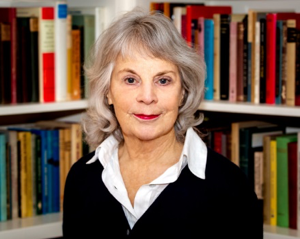
Pre-Recorded Keynote Lecture – Saturday, August 22 - 12noon – 1:30pm
Ann Belford Ulanov, M.Div., Ph.D., L.H.D. is a Jungian analyst in New York City and Professor Emerita of Psychology and Religion Union Theological Seminary. Presenter here and abroad, she is author of many books, among which are Madness & Creativity, The Psychoid, Soul and Psyche: Piercing Space/Time Barriers; The Female Ancestors of Christ; and with her late husband Barry Ulanov, Cinderella & Her Sisters:The Envied and the Envying, The Healing Imagination, Transforming Sexuality: The Archetypal World of Anima and Animus.
Blundering into the Work of Redemption
These words of Jung echo a main thread throughout The Red Book that tells the story of his journey to find his lost soul. He says that the images in this journey were the most important of his life and became the source of all his later theories. We will hear Jung's words, and we will focus on surprising aspects of his discoveries. He says of them at first he feared psychosis; then he learned what he discovered belonged to everyone's psyche. Each person is unique yet we share main themes of madness and creativity.
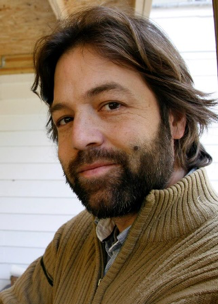
Lecture – Sunday, August 23 – 10am – 11:30pm
Jonathan Pageau, BFA, is professional icon carver and liturgical artist. His recent commissions include a crozier for the Catholic Archbishop of Montreal to celebrate the 375th anniversary of the city. He co-founded the Orthodox Arts Journal with building designer Andrew Gould and gives weeklong carving seminars several times a year. Jonathan is also an expert on traditional symbolism. Each year he gives conferences all over North America on the relevancy of symbolism today. His work on symbolism has been featured in publications like Newsweek and The Federalist. He hosts a YouTube channel with over 80,000 subscribers and millions of views. He has recently launched a new publishing platform featuring several authors dealing with symbolic structures on his website thesymbolicworld.com.
Ecstasy and Madness in 2020
2020 has been a crazy year. With Coronavirus, the George Floyd protests and the US election fusing into an accelerating whirlwind, it is difficult to make sense of all that is going on. In this talk we will explore the patterns emerging of separation and communion, purity and mixture, inclusion and scapegoating which have marked the year. We will examine the religious symbolism and behavior which has appeared in the wearing of masks, the procession of protests and the ecstasy of self-negation.
Jonathan Pageau, BFA, is professional icon carver and liturgical artist. His recent commissions include a crozier for the Catholic Archbishop of Montreal to celebrate the 375th anniversary of the city. He co-founded the Orthodox Arts Journal with building designer Andrew Gould and gives weeklong carving seminars several times a year. Jonathan is also an expert on traditional symbolism. Each year he gives conferences all over North America on the relevancy of symbolism today. His work on symbolism has been featured in publications like Newsweek and The Federalist. He hosts a YouTube channel with over 80,000 subscribers and millions of views. He has recently launched a new publishing platform featuring several authors dealing with symbolic structures on his website thesymbolicworld.com.
Ecstasy and Madness in 2020
2020 has been a crazy year. With Coronavirus, the George Floyd protests and the US election fusing into an accelerating whirlwind, it is difficult to make sense of all that is going on. In this talk we will explore the patterns emerging of separation and communion, purity and mixture, inclusion and scapegoating which have marked the year. We will examine the religious symbolism and behavior which has appeared in the wearing of masks, the procession of protests and the ecstasy of self-negation.
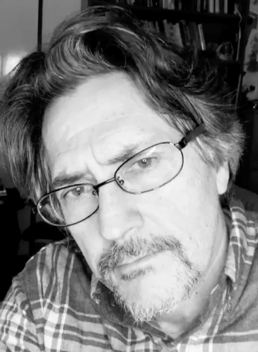
Lecture – Saturday, August 29 – 10am – 11:30pm
Victor J. Krebs (Ph.D., University of Notre Dame, USA) is Professor of Philosophy in the Humanities department at the Pontifical Catholic University of Peru. His areas of interest are technology, language, art, aesthetics, film, psychoanalysis and culture. He writes on Wittgenstein, Cavell, Benjamin, Deleuze, and Derrida. He is founding director of The Jungian Circle of Perú and of VJK Philosophical Curatorship, coordinator of Hermes, a research group on contemporary thought at the Center of Philosophical Studies at PUCP, whose objective is "to bring philosophy to the streets." He regularly collaborates with the cultural section of El Comercio.
Pygmalion: An Archetypal Perspective
Pygmalion was the famous Chiprean sculptor who, judging mortal women too imperfect, chose to make himself instead the perfect woman, by means of his sculpting art.
The Myth of Pygmalion is an archetypal image that articulates a human complex that has defined Western culture since Plato’s world of Forms, (those intelligible ideals that the sensible world was said to imperfectly copy) accessible to our rational minds. Since then, we have like Pygmalion, sought to replace an imperfect world, hostile to our desires, by a world more docile and yielding to them, by means of our technological art. The internet is our Pygmalionic statue, providing us immediate satisfaction with a simple click. The myth ends with Aphrodite granting Pygmalion’s wish of a perfect woman, by bringing the statue to life, suggesting that the whole process of objectification that constitutes the pygmalionic impulse, is merely a necessary transition towards a fuller reality.
What can this myth tell us about our contemporary culture? We will answer that question adding a second myth - another defining archetype of our contemporary culture - that of Endymion, the beautiful Greek ephebe who swapped his waking mortal life for an eternal dream, where he could remain eternally gazing at the beauty of his beloved Selene.
Victor J. Krebs (Ph.D., University of Notre Dame, USA) is Professor of Philosophy in the Humanities department at the Pontifical Catholic University of Peru. His areas of interest are technology, language, art, aesthetics, film, psychoanalysis and culture. He writes on Wittgenstein, Cavell, Benjamin, Deleuze, and Derrida. He is founding director of The Jungian Circle of Perú and of VJK Philosophical Curatorship, coordinator of Hermes, a research group on contemporary thought at the Center of Philosophical Studies at PUCP, whose objective is "to bring philosophy to the streets." He regularly collaborates with the cultural section of El Comercio.
Pygmalion: An Archetypal Perspective
Pygmalion was the famous Chiprean sculptor who, judging mortal women too imperfect, chose to make himself instead the perfect woman, by means of his sculpting art.
The Myth of Pygmalion is an archetypal image that articulates a human complex that has defined Western culture since Plato’s world of Forms, (those intelligible ideals that the sensible world was said to imperfectly copy) accessible to our rational minds. Since then, we have like Pygmalion, sought to replace an imperfect world, hostile to our desires, by a world more docile and yielding to them, by means of our technological art. The internet is our Pygmalionic statue, providing us immediate satisfaction with a simple click. The myth ends with Aphrodite granting Pygmalion’s wish of a perfect woman, by bringing the statue to life, suggesting that the whole process of objectification that constitutes the pygmalionic impulse, is merely a necessary transition towards a fuller reality.
What can this myth tell us about our contemporary culture? We will answer that question adding a second myth - another defining archetype of our contemporary culture - that of Endymion, the beautiful Greek ephebe who swapped his waking mortal life for an eternal dream, where he could remain eternally gazing at the beauty of his beloved Selene.
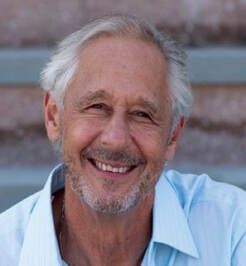
Lecture – Sunday, August 30 – 10am – 11:30am
Dr. Michael Conforti is a Jungian analyst and the Founder and Director of The Assisi Institute. He is a faculty member at the C.G. Jung Institute, New York, Jung Institute, Boston, and for many years served as a Senior Associate faculty member in the Doctoral and Master's Programs in Clinical Psychology at Antioch New England.
A pioneer in the field of matter-psyche studies, Dr. Conforti is actively investigating the workings of archetypal fields and the relationship between Jungian psychology and the New Sciences. He has presented his work to a wide range of national and international audiences.
He is the author of multiple published articles along with several books which have been translated into Italian, Russian and a soon to be released Spanish edition.
Psyche in the World, Psyche in the Soul:
Further Explorations in the Expression of Synchronous Events
Dr. Michael Conforti is a Jungian analyst and the Founder and Director of The Assisi Institute. He is a faculty member at the C.G. Jung Institute, New York, Jung Institute, Boston, and for many years served as a Senior Associate faculty member in the Doctoral and Master's Programs in Clinical Psychology at Antioch New England.
A pioneer in the field of matter-psyche studies, Dr. Conforti is actively investigating the workings of archetypal fields and the relationship between Jungian psychology and the New Sciences. He has presented his work to a wide range of national and international audiences.
He is the author of multiple published articles along with several books which have been translated into Italian, Russian and a soon to be released Spanish edition.
Psyche in the World, Psyche in the Soul:
Further Explorations in the Expression of Synchronous Events
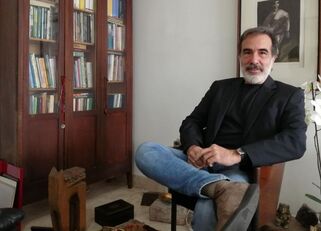
Lecture – Sunday, August 30 – 12noon – 1:30pm
Eduardo Carvallo, MD is a psychiatrist (Central University of Venezuela, 1990) and a Jungian analyst (IAAP, 2001). He has been involved in the Training program for becoming Jungian Analysts of the IAAP, as analyst and supervisor of the candidates and routers of Venezuela, Colombia, and Ecuador. He has also participated in supervision processes with analysts and candidates/routers of Argentina, Chile, Panama, Spain, and the USA. Eduardo has published many articles in different Jungian journals about clinical, cultural and political issues from the Jungian perspective. He serves as the Director of Mythological Studies for the Assisi Institute’s APA program.
Eduardo Carvallo, MD is a psychiatrist (Central University of Venezuela, 1990) and a Jungian analyst (IAAP, 2001). He has been involved in the Training program for becoming Jungian Analysts of the IAAP, as analyst and supervisor of the candidates and routers of Venezuela, Colombia, and Ecuador. He has also participated in supervision processes with analysts and candidates/routers of Argentina, Chile, Panama, Spain, and the USA. Eduardo has published many articles in different Jungian journals about clinical, cultural and political issues from the Jungian perspective. He serves as the Director of Mythological Studies for the Assisi Institute’s APA program.

Muriel McMahon M. Ed. is a Zurich trained Jungian Analyst with an online international praxis in Ontario, CANADA. She is a former Training analyst and Faculty member of the C.G. Jung Institute, Zurich, the Managing Editor of the Assisi Journal, and the Co-Director of Studies for the Assisi Institute’s APA program. Muriel has a passion for story and has explored the ways in which our wounds and our wonders are expressed in the narrative of our lives, a narrative that never begins nor ends with us alone. The trans-generational has been the focus of much of her research.
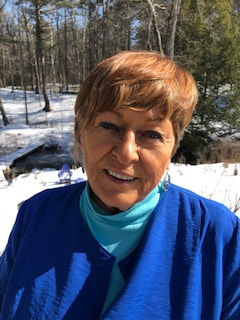
Janet D. Brown, M.Ed., C.A.S., has been a part of the Assisi Community since the beginning. In her early twenties she worked as an administrative assistant at The Educational Center in St. Louis which developed Centerpoint, a curriculum based in Jungian theory, used by more than 20,000 persons throughout the USA. There was one part of that job she particularly valued – the “obligation” to transport some of the famous early Jungian analysts from the St. Louis airport to convention centers where the Educational Center held conferences. Among those analysts were Esther Harding, Edward Edinger, Jo and Jane Wheelwright, David Hart, Marie Louise Von Franz, James Hollis, Jean Bolen, and many others. During her three years there, she had become a serious student of Jungian psychology.
Later she returned to New Hampshire, earned a master’s degree in consulting and counseling psychology at Harvard Graduate School of Education and also trained as Jungian Analyst at the C.G. Jung Institute of Boston, but due to family emergencies had to curtail her studies prior to graduation. She has recently retired after 35 years of being a psychotherapist and chair of behavioral health for a large multi-specialty medical group in Southern New Hampshire. Since then she has relished more time with her husband, children and their spouses, and three young grandchildren, and her flower gardens have never looked better.
Memes and Memories: A Discussion with Authors in the Assisi Journal
In the uncertain Zeitgeist of contemporary society, we are called, perhaps now more than ever before, to reaffirm our generative foundations and establish our best trajectory for our future. As such, we stand on the shoulders of the men and women who have taken up the task of individuation and blazed a trail for us from ignorance to insight.
The Assisi Institute, founded by Dr. Michael Conforti, has labored in these vineyards for over thirty years. We are heir to this work. Our collective memories and our emerging memes speak with the voice of psyche and connect us to the universal stories that strengthen our interconnectedness. We are delighted to introduce Memes and Memories, The Assisi Institute Journal Volume 3, Number 1. Managing Editor, Muriel McMahon and Chair of the Editorial Board, Janet Brown will moderate a discussion on the current theme and introduce some of the authors and articles selected for this edition.
Childbirth, Exile, The Flint Water Crisis, the Canoe, the Fool, and COVID are some of the issues and archetypal perspectives explored. Supported by clinical work, but not limited to the consulting room, the work of The Assisi Institute students, graduates, and faculty demonstrate the breadth of understanding an archetypal lens offers. This presentation will afford you the opportunity to meet some of the authors and experience the depth of scholarship and soul at the heart of The Assisi Institute: The International Centre for the Study of Archetypal Patterns.
In the uncertain Zeitgeist of contemporary society, we are called, perhaps now more than ever before, to reaffirm our generative foundations and establish our best trajectory for our future. As such, we stand on the shoulders of the men and women who have taken up the task of individuation and blazed a trail for us from ignorance to insight.
The Assisi Institute, founded by Dr. Michael Conforti, has labored in these vineyards for over thirty years. We are heir to this work. Our collective memories and our emerging memes speak with the voice of psyche and connect us to the universal stories that strengthen our interconnectedness. We are delighted to introduce Memes and Memories, The Assisi Institute Journal Volume 3, Number 1. Managing Editor, Muriel McMahon and Chair of the Editorial Board, Janet Brown will moderate a discussion on the current theme and introduce some of the authors and articles selected for this edition.
Childbirth, Exile, The Flint Water Crisis, the Canoe, the Fool, and COVID are some of the issues and archetypal perspectives explored. Supported by clinical work, but not limited to the consulting room, the work of The Assisi Institute students, graduates, and faculty demonstrate the breadth of understanding an archetypal lens offers. This presentation will afford you the opportunity to meet some of the authors and experience the depth of scholarship and soul at the heart of The Assisi Institute: The International Centre for the Study of Archetypal Patterns.
